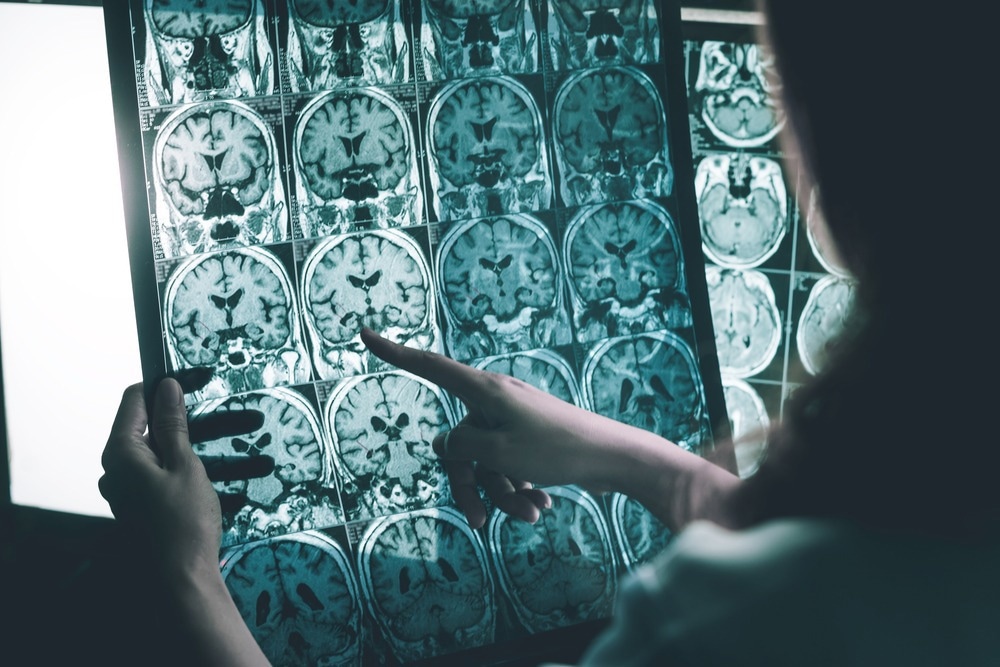A paradigm change in the understanding of Alzheimer’s pathogenesis has been made evident by recent research, highlighting the significance of concentrating on the soluble oligomeric form of the pathogenic amyloid beta (A-beta) protein to target its early-stage aggregation.

Image Credit: Atthapon Raksthaput/Shutterstock.com
Conventional Alzheimer's treatments have generally failed over the last three decades, owing to their concentration on battling the fibrillar form of A-beta. However, current data shows that it is the soluble oligomeric form of A-beta that presents the greatest danger to neuronal health, leading to cognitive decline and neurotoxicity.
The discovery of an antibody that can distinguish between the fibrillar and oligomeric types of A-beta has recently revolutionized the treatment of Alzheimer’s disease and given the field great hope. When used in conjunction with other novel therapies, patients with early-to-mild cognitive impairment can potentially delay the advancement of their condition by up to 36%.
Building on this momentum, Israeli and Italian researchers have worked together to create a novel treatment plan that targets A-beta’s early-stage aggregation prior to the production of harmful oligomers. The researchers have effectively suppressed the aggregation and toxicity of A-beta in preclinical models by utilizing ultra-low-energy X-Rays and nanotechnology, which presents a possible path for early intervention in Alzheimer’s disease.
Together with Italian scientists Profs. Angelo Monguzzi and Marcello Campione from the University of Milano-Bicocca, Prof. Shai Rahimipour of Bar-Ilan University’s Department of Chemistry created nanoparticles with a high affinity for the early-stage soluble A-beta. These nanoparticles effectively stop the aggregation process when they are activated by ultra-low-energy X-Rays.
This approach has shown promising results in neuronal cell cultures and animal models, offering new possibilities for early intervention in Alzheimer’s disease.
Shai Rahimipour, Associate Professor, Bar-Ilan University
This method has a distinct benefit in that it can irradiate and target specific brain areas that are afflicted, hence reducing the likelihood of adverse effects that are commonly linked with traditional antibody-based treatments. In preclinical models, preliminary studies have also shown the safety and effectiveness of low-energy X-Rays and nanoparticles, opening the door for more investigation in human clinical trials.
“Our ultimate goal is to develop a safe and effective treatment for individuals in the early stages of Alzheimer’s, with a focus on those at high risk, such as those with familial Alzheimer’s. By targeting the early-stage aggregation of A-beta, we aim to prevent disease progression and improve the quality of life for patients and their families,” Rahimipour added.
The study team has a patent for the method and the nanoparticles, which are made of hydrated magnesium silicate, and has shown blood-brain barrier permeability in animal models. Further study is being conducted to improve the treatment regimen and examine its long-term effectiveness in clinical settings.
This study, supported in part by the Israeli Ministry of Science and Technology, was just published in the journal Advanced Healthcare Materials.
Journal Reference:
Senapati, S., et. al. (2024) Noninvasive Treatment of Alzheimer's Disease with Scintillating Nanotubes. Advanced Healthcare Materials. doi:10.1002/adhm.202301527